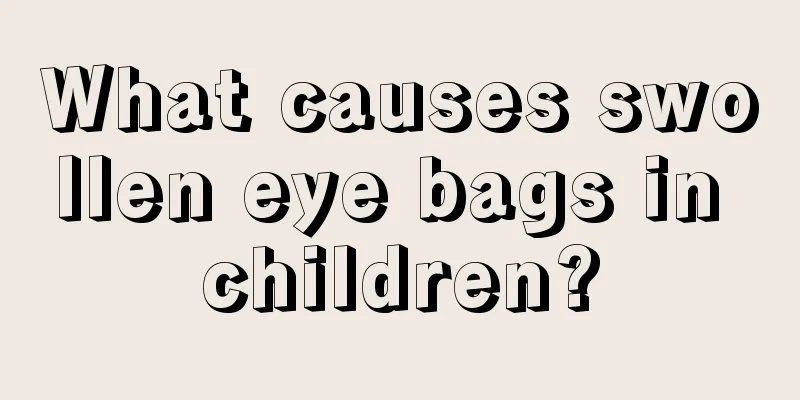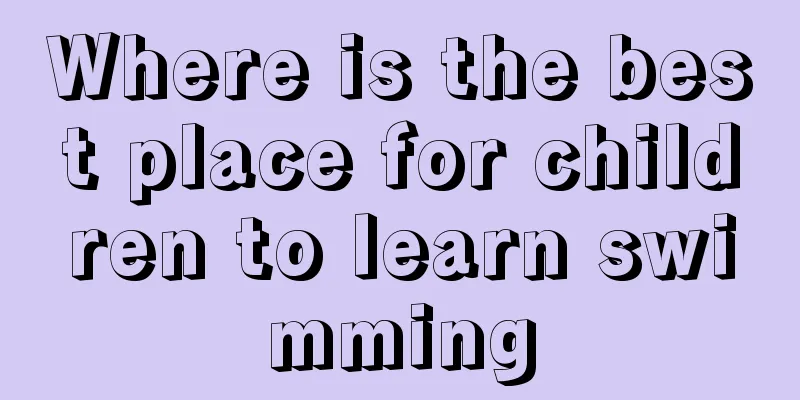7 little secrets of the language sensitive period

|
Do you still remember the feeling when you first heard your baby call “Mom and Dad”? That childish cry must have made you, as a new parent, very happy. This first "Mom and Dad" means that the baby has entered the language sensitive period, which also makes us think: How to accompany the baby through this period of babbling time? Let's explore the little secrets of the language sensitive period together! When you are happy about the baby's daily language progress, do you know how he learned it? What kind of amazing language ability does he have? Language preparation: Your baby's extraordinary speech recognition abilities Babies begin learning language while they are still in their mother's arms. Studies have found that babies can distinguish different sounds shortly after birth, and especially like their mother's voice. In addition to being sensitive to the speaker's voice, babies are also sensitive to subtle differences in speech that adults cannot match. For example, babies around 4 months old can distinguish the speech of different countries, which is very difficult for adults. So, don’t think that a newborn baby doesn’t understand what you are saying. In fact, his ability to recognize language is better than that of adults. A mother's gentle voice and timely responses can soothe the baby's emotions very well, and can also help the baby gradually establish a good communication pattern and help the baby prepare for language development. After about 4 months, the baby enters the babbling stage. At first, he will babble meaningless syllables. Words like "papa" and "mama" that make you ecstatic may be unintentional. After that, the sounds your baby makes begin to have meaning. At this time, the mother will involuntarily start a "meaningless" conversation with the baby - in fact, such a conversation is particularly meaningful. These "conversation games" are great for unlocking your baby's language skills. Language explosion stage: the baby's vocabulary explosion In addition to the initial "Mom and Dad", have you ever noticed what are the first words your baby says? In any case, those words that your baby says inadvertently may surprise us. Around one year old, babies can say their first words. From "Mom and Dad" to favorite toys such as "ball" and "car", or words that go with actions such as "no" and "hug". In addition to saying a few simple words, your baby can understand far more words than he can say. Studies have shown that comprehension precedes expression in language development, that is, babies listen and understand words much earlier than they speak. For example, when an adult says a certain word, the baby will look at the corresponding object, indicating that he knows what you are talking about. What’s even more amazing is that babies can “guess” the meaning of words. For example, when the baby has familiar objects in front of him, such as "car" and "ball", there is also a new toy that the baby has never seen before. Then when the mother says, "Where is the music box?" the baby will most likely know that the new toy is called a "music box." Perhaps it is this ability to understand and infer vocabulary that allows babies to enter the magical "vocabulary explosion period" after one and a half years old. At this time, the baby can understand more and more words and sentences, and new words and sentences pop up almost every day. After the age of 2, babies will speak "telegraphic language" and short sentences of three or four words created by themselves. By the age of three or four, the baby can already understand what adults say very well. He can even bargain with you and express his demands freely. What to do if your baby is late in speaking Mothers often say that their babies do not speak well, and they become anxious when they see many babies of the same age who are "good at speaking". The period between 1.5 and 2 years old is the vocabulary explosion period, and the baby speaks significantly more during this stage. However, every baby has his or her own language development trajectory, and individual differences are obvious. There are also babies who speak late, so there is no need to be too anxious. Parents should also pay attention to distinguish whether the baby can understand and execute your instructions. If the baby can, it means that the baby has no problem understanding the words, but may just lack training and opportunities to express himself. In addition, babies who grow up with multiple dialects or foreign languages may start speaking later than babies who grow up with a single language. In any case, parents should talk to their babies more often, give them more opportunities to speak, and avoid negative psychological suggestions. Finally, take your baby to the hospital for necessary screening in time to rule out physiological reasons such as hearing and pronunciation organs, as well as the possibility of language development disorders and autism. Should I let my baby learn a foreign language? More and more parents want their babies to start learning foreign languages at a young age, and there are many English training schools for children of low age. The slogan "Don't let your baby lose at the starting line" makes parents feel pressured. Should they let their baby learn English? When is the best time to start learning? Studies have found that bilingual learning has a good effect on the development of babies' cognitive abilities. However, such research results are not enough to prove that babies can learn foreign languages without any worries. Bilingual babies generally learn two languages in a natural bilingual environment. The conditions under which they learn a foreign language are more important than whether they learn a foreign language. If a natural bilingual learning environment cannot be provided for the baby, then foreign language learning will not only fail to promote the baby's language development, but will have the opposite effect and affect the baby's learning of his or her mother tongue. Therefore, it is best to learn your mother tongue first and then learn a foreign language. Provide a relatively stable and natural language environment for your baby Today's babies live in a colorful environment, where they are taken care of by their grandparents and are accompanied by high-tech electronic products as they grow up. However, such an environment brings challenges to the baby's language development. The dialects of our elders, combined with Mandarin and even foreign languages, obviously increase the difficulty of language learning. Although babies have an amazing ability to learn languages, a multilingual environment can still bring considerable pressure and cause the phenomenon of "late speaking". In addition, in order to save time and effort, parents often leave the task of teaching their babies to speak to iPads or televisions. It is true that cartoons or "Tom Cat" are very popular among babies, but there is controversy as to how much effect these can have on the baby's language development. I dare not say that this has no effect on the baby's language development, but this way of learning is far less effective than parents sitting down and chatting with their baby. Because when babies are learning language, responses and interactions from adults are very important. Language communication is not just talking, there are also a lot of body language and even emotional communication, which are not what "Tom Cat" can provide. Respond to your baby promptly and talk to him/her more often Have you ever played the "dialogue" game with your baby? The baby babbles and waves his hands excitedly, and you listen to him patiently or talk to him, and he will respond with a cheerful expression. Babies who are in the language preparation period like this kind of "conversation" very much. Although in fact they don't know what you are saying and you don't know what the baby's babbling means, this does not hinder the parent-child communication between you. This is a great language learning opportunity for your baby. Please be more patient and talk to your baby. In addition to the "conversation" game, babies also like a "joint attention" game. For example, when the baby is looking at an object, the adult can also follow the baby's attention, or the adult can point to an object, let the baby pay attention, and then tell the baby what it is. Babies as young as four or five months old can play this kind of game. Researchers call this a "joint attention activity." They found that babies who regularly participate in joint attention activities learn to speak earlier and develop their vocabulary faster. When guiding and responding to the baby, we can use "baby language" that the baby prefers, speak slowly, try to make each word clear, use concise language, standard vocabulary, and ups and downs in the tone. In life, take advantage of every opportunity to talk to your baby and create a rich language environment for your baby. Delay gratification for your baby and give him a chance to express himself Some parents do respond to their babies in a timely manner. For example, when the baby wants to drink water, the parents will put the cup to his mouth as long as they take a look at him. The baby is satisfied without speaking, so of course he is too lazy to open his mouth. Responding in this way will undermine your baby's motivation to speak. At this time, you must learn to be patient and guide your baby to express his or her wishes in clear words and complete sentences. Maybe your baby cannot express himself accurately at once, or you may already know what he means. In this case, please let him finish speaking and never deprive him of the opportunity to speak. For older babies, you can encourage them to talk about pictures or tell stories, stimulate their imagination through games, and encourage them to express their ideas in their own language. In addition, you can take your baby out of the house more often, visit different places more often, and communicate and play more with peers. This is not only a process for the baby to learn language to express his wishes, but also an opportunity to learn interpersonal communication! |
<<: 10 Foods That Can Cause Choking in Children
>>: 7 Wrong Words and Actions of Parents Affect Your Baby's Life
Recommend
What should babies with telangiectasia pay attention to in their daily lives?
My friend's child is 7 months old. I found a ...
What to do if a 15-year-old child inherits white hair
As we age, the melanin in our bodies begins to de...
What is vaginal bleeding in newborns?
Newborns are the treasures of their parents. Howe...
What is occult blood in children's urine test?
It is common for many people to find occult blood...
Newborn baby doesn't drink milk and only sleeps
All the nutrition a newborn needs after birth com...
Why is my baby crying all the time these days?
Many young parents who have just become parents c...
How to use a baby carrier?
The baby's body is in a normal growth stage a...
The best time to supplement calcium for infants and young children
Calcium is the most important thing for human gro...
How to treat children’s nasal congestion quickly?
If a child has a stuffy nose, it is most likely c...
What are the symptoms of fright in children?
Children are very sensitive to many things in lif...
What are the ways to promote children's growth?
A child's height is directly related to many ...
What is the best way to treat prickly heat in children?
Every child is the apple of his or her parents’ e...
Can a five-year-old child recover from myopia?
Maybe everyone knows this when they pick up their...
Precautions for taking children's cough syrup
Children often cough after catching a cold. If yo...
Treatment for watery stools in babies
I believe that all of us have experienced watery ...









